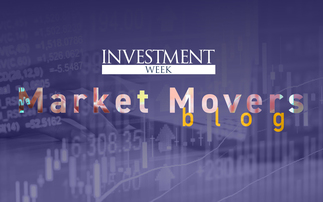Peter Schwabach of Shield Investment Management and Simon Wajcenberg of North Block Capital, discuss how they are using crypto assets to generate above-average returns for investors as the sector seeks regulation.
"In addition, we invest in blockchain technology as well. And whilst I would still class both of these types of investments as high risk, I would also add that it is important to remember we are later stage investors and the ICOs we are investing in will have already raised capital in first round fundraising stages from highly regarded institutions such as Bain Capital and Union Square Ventures."
For Wajcenberg, the attraction of this asset class is clear, even if it holds an element of higher risk: it is an uncorrelated sector with the potential for "stratospheric" returns.
He explains: "You cannot get returns like these from crypto assets without an element of risk. But investors are rewarded. At the end of 2017, our portfolio was up 100x. Even in the current bear market, our portfolio is still up."
Meanwhile, Schwabach's fund avoids currencies altogether and looks to invest in the computational power and data centres facilitating blockchain transactions to generate enhanced monthly revenues for investors.
By investing in the actual infrastructure behind blockchain Schwabach believes it to be lower risk than investing in crypto currencies themselves.
The Shield Blockchain Infrastructure fund aims to attract professional investors with $100,000 to $1m to invest over a three-year period, with a targeted return of capital within the first 12 months.
He explains: "We invest in the infrastructure supporting crypto assets and in the ‘super computers' that validate and register blockchain transactions globally. We find investments in these assets can be highly lucrative in generating long-term enhanced revenues for investors.
"The interesting thing about investing in these assets is that they are completely uncorrelated to the debt or equity markets. In addition to investing in these assets through a Guernsey structure, Shield has also launched an EIS fund investing in companies providing blockchain infrastructure services which is attractive for many UK investors."
Regulated sector
Although the sector remains unregulated, there has been much talk from the government about cracking down on the "wild west" crypto assets market. Regulation of sorts now seems to be on the cards which is welcomed by Schwabach and Wajcenberg.
In September, a Treasury Select Committee published a report on crypto assets as part of its Digital Currencies inquiry, and argued the "ambiguity of the UK government and regulators' position" was clearly not sustainable, and urged the government to regulate the industry and evaluate the risks of crypto assets to assess whether growth should be encouraged.
For Schwabach, the regulation of crypto assets is inevitable and is likely to be a quick process given the sector's significant growth potential.
He explains: "Once regulation of this sector is completed, investors will have more confidence in this asset class and the UK will have the potential to become a key player in this international market. In 2018 over $15bn was raised in ICOs and the City of London would like to play a key role in the market. It seems global corporations and financial institutions are finally recognising blockchain and cryptocurrencies as a legitimate technology."
This article is based on the Decoding Crypto Assets webinar hosted by Investment Week and Professional Adviser. To hear more on the subject, visit:
http://webinars.professionaladviser.com/decoding-crypto-assets















